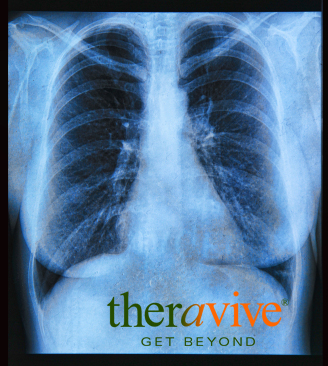
Everyone begged him to quit smoking - his wife, his sons, his friends. Although he had a family history of lung cancer, he smoked a pack of cigarettes a day. “You are committing suicide”, his doctor would tell him. The warnings fell on deaf ears. One day he went to the hospital complaining of shortness of breath, thinking it was simply pneumonia. He thought he would be fine with antibiotics. Of course he wasn’t fine. He was diagnosed with stage IV inoperable lung cancer.
Cancer is the uncontrolled growth of abnormal cells. Normal cells carry human DNA, the body’s genetic material. When a healthy cell divides it copies DNA exactly and cells continue to do their proper occupations. Sometimes, however, there is an error (mutation) in the cell when it divides. When the unhealthy cell starts repeatedly dividing, more and more mutations take place, causing the cells to no longer function properly. These are the cells that become cancerous. Eventually they can form tumors which interfere with the functioning of the organ that they inhabit. When lung cancer cells travel to other parts of the body it is called metastasis. [1]
Also called bronchogenic carcinomas, lung cancers are divided into two broad categories - small cell lung cancer (SCLC) and non-small cell lung cancer (NSCLC). Small cell lung cancers occur less frequently are are the lung cancer most associated with cigarette smoking. SCLC occurs in 20% of lung cancer patients and is also the more aggressive form of the illness. Unfortunately, because of its rapid growth and metastasis, the discovery of SCLC often comes as a result of it already having spread to other parts of the body. NSCLC is the more common form of lung cancer, occurring in about 80% of cancer patients. Although also strongly associated with cigarette smoking, not all people who develop NSCLC are smokers. Adenocarcinomas are the most common of the non-small cell lung cancers, occurring in about 50% of NSCLC patients and develop in the outer areas of the lung. Squamous cell carcinomas are the next most common type of non-small cell lung cancers, accounting for about 30% of NSCLC cases and form in the central chest and bronchi. [2]
Lung cancer is also divided into developmental stages, although it has been suggested that these stages be redefined. NSCLC is divided into stages I through IV, stage I being the least severe and stage IV being the most advanced. Stage III of NSCLC is divided into substages. SCLC is divided into two stages, which are “limited” and “extensive”. [3]
Although great strides have been made in treating other forms of cancers, the prognosis for lung cancer is often grim. By the time of diagnosis, 65% of those diagnosed already have advanced stages of the disease. Surgery is the best option for those patients diagnosed with stages I through III, but as lung cancer is not always detected early, surgery becomes a less realistic option with the progression of the disease. For those with stage I NSCLC, the five year survival rate with surgery is 70%, but drops to only 30% for those with stage III. Stage IV lung cancer is quite simply classified as being inoperable. [4]
Because lung cancer is so difficult to treat the more advanced it becomes, the best way to prevent it is with early detection. Recommendations for lung cancer screenings are basically non-existent. Screening for lung cancer is an area that definitely needs more attention in the field of medicine. Moreover, since most forms of lung cancer are directly related to smoking and cigarette smoke exposure, smoking cessation and removing yourself from a smoke-filled environment is the best prevention. Carcinogens from cigarette smoke are inhaled and passed into the bloodstream. A non-smoking woman who lives with a smoker is at 24% greater risk of developing lung cancer. [5] Other external factors that contribute to lung cancer are exposure to asbestos, chemicals such as benzene and repeated exposure to radiation and ultraviolet rays.
November is Lung Cancer Awareness Month. Anyone who has battled lung cancer or has lost a loved one to the disease knows first hand how horrific it is. Because lung cancer in particular can be avoided, it is very important to know the risks of developing this awful and largely untreatable illness. For your own sake and for the sake of your loved ones, consider your health now before it is too late. This is an illness you do not want to get.
_________________________________________________________________________________________________________________________________
[1] [“What Is Lung Cancer?” http://www.lungcancer.org/find_information/publications/163-lung_cancer_101/265-what_is_lung_cancer]
[2] [“What are the types of lung cancer?” http://www.medicinenet.com/lung_cancer/page3.htm]
[3] [“Lung Cancer: Diagnosis and Management”,
Lauren G. Collins, M.D., Christopher Haines M.D., Robert Perkel, M.D., and Robert E. Enck, M.D. 2007 http://www.med.wright.edu/sites/default/files/medu/Archived/2013/M2/Respiratory/Collins_etal_Lung_Cancer_AFP2007.pdf]
[4] [“Detection of Aberrant Promoter Hypermethylation of Tumor Suppressor Genes in Serum DNA from Non-Small Cell Lung Cancer Patients”, Manel Esteller, Montserrat Sanchez-Cespedes, Rafael Rosell, David Sidransky,Stephen B. Baylin, and James G. Herman. 1999 http://cancerres.aacrjournals.org/content/59/1/67.full]
[5] [“The accumulated evidence on lung cancer and environmental tobacco smoke”, A K Hackshaw, M R Law, N J Wald. 1997 http://www.ncbi.nlm.nih.gov/pmc/articles/PMC2127653/pdf/9365295.pdf]
Christie Hunter is registered clinical counselor in British Columbia and co-founder of Theravive. She is a certified management accountant. She has a masters of arts in counseling psychology from Liberty University with specialty in marriage and family and a post-graduate specialty in trauma resolution. In 2007 she started Theravive with her husband in order to help make mental health care easily attainable and nonthreatening. She has a passion for gifted children and their education. You can reach Christie at 360-350-8627 or write her at christie - at - theravive.com.